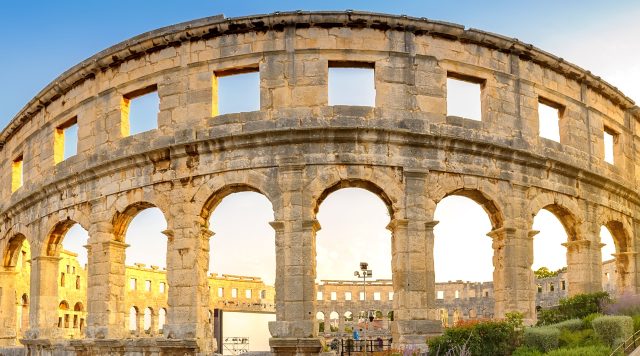
The study of Latin has, for understandable reasons, been given less and less importance in our European countries. From being an inalienable part of all academic education in previous centuries, the study of Latin has today become a sophisticated luxury that only students – in most countries – with specifically humanistic interests choose to enjoy. It is probably neither possible nor desirable to see a situation where Latin regains its former place in our European education system. But it would be valuable if we at least ensured that Latin continues to be a natural part of all higher humanistic education.
It is interesting to note the arguments which the defenders of Latin adduce to motivate young people to study the language of Caesar and Saint Augustine. First of all, knowledge of Latin is considered to be broadening the possibility for historians and humanistic researchers to read the considerable amount of literature and documents that once were actually written in this language. And even for those who are not professional scholars but who may have a general interest in older Western culture, there is of course a point in being able to read all the older documents and texts written in latin.
The second main argument is that the study of Latin trains us in theoretical and grammatical thinking. It also requires a certain discipline and capacity for continuity and persistence to learn enough Latin to be able to get by in authentic texts.
In both cases, we can say that the benefit of studying Latin is located on the individual level. As a cultural scientist and historian, you have an interest in studying Latin. But the work required to be able to read Latin texts also forces you to think theoretically and to train your endurance.
But there is another perspective that should be highlighted when we talk about Latin studies. And this time it is not about any individual or personal benefit, but about a common civilizational one.
Let’s put it like this. Europe needs a new Renaissance. When the Renaissance of the 15th and 16th centuries shaped modern Europe, the intellectual, artistic and political elites identified themselves with Greco-Roman Antiquity. 16th century Europeans got an idea of the greatness and potential of European civilization by incorporating the Greco-Roman world into one’s own identity. Plato, Aristotle, Alexander the Great, Caesar, Ovid, but also Christianity as it appears in the New Testament was part of their own civilizational community. Thus, the ancient authors became their ancient fathers, their role models, those who had shown the way.
We have just passed the turn of the millennium. We live in a new millennium, the third from the birth of Christ. At the same time, Europe, and the Western world in general, is going through a civilizational crisis. We don’t believe in ourselves. We are plagued by political contradictions. Many think that the migration to Europe challenges Europe’s culture and existence. Some cultural experts speak of a European “oikophobia”: a fear of one’s own.
What is needed is perhaps a second Renaissance. We need to once again identify ourselves with the great history of Europe. We need to believe once again in ourselves, in our identity, our strength, our possibilities. Once again we need to seek wisdom from our own philosophy. And above all, we need to find our self-esteem back.
And here, an increased interest in Latin and Latin literature can be a factor that can drive development in the right direction. There is a remarkably high interest in Rome and Greece in popular culture. A film like “Gladiator” has done much to broaden interest in our European antiquity. This should be supplemented by a substantial investment in Latin studies in our schools and at our universities – or perhaps on the internet. Learning Latin is not a quick fix but given the widespread fascination with Rome among many young people today, it should be possible to also create an interest in the Latin language.
This would be a welcome boost to our cultural confidence. The Romans were Europeans just like us. We belong to the same cultural sphere as the Roman warriors and writers and women. Rome is our history and we have an obligation to pass on the legacy. Europe really needs to become great again.



 Subscribe
Subscribe